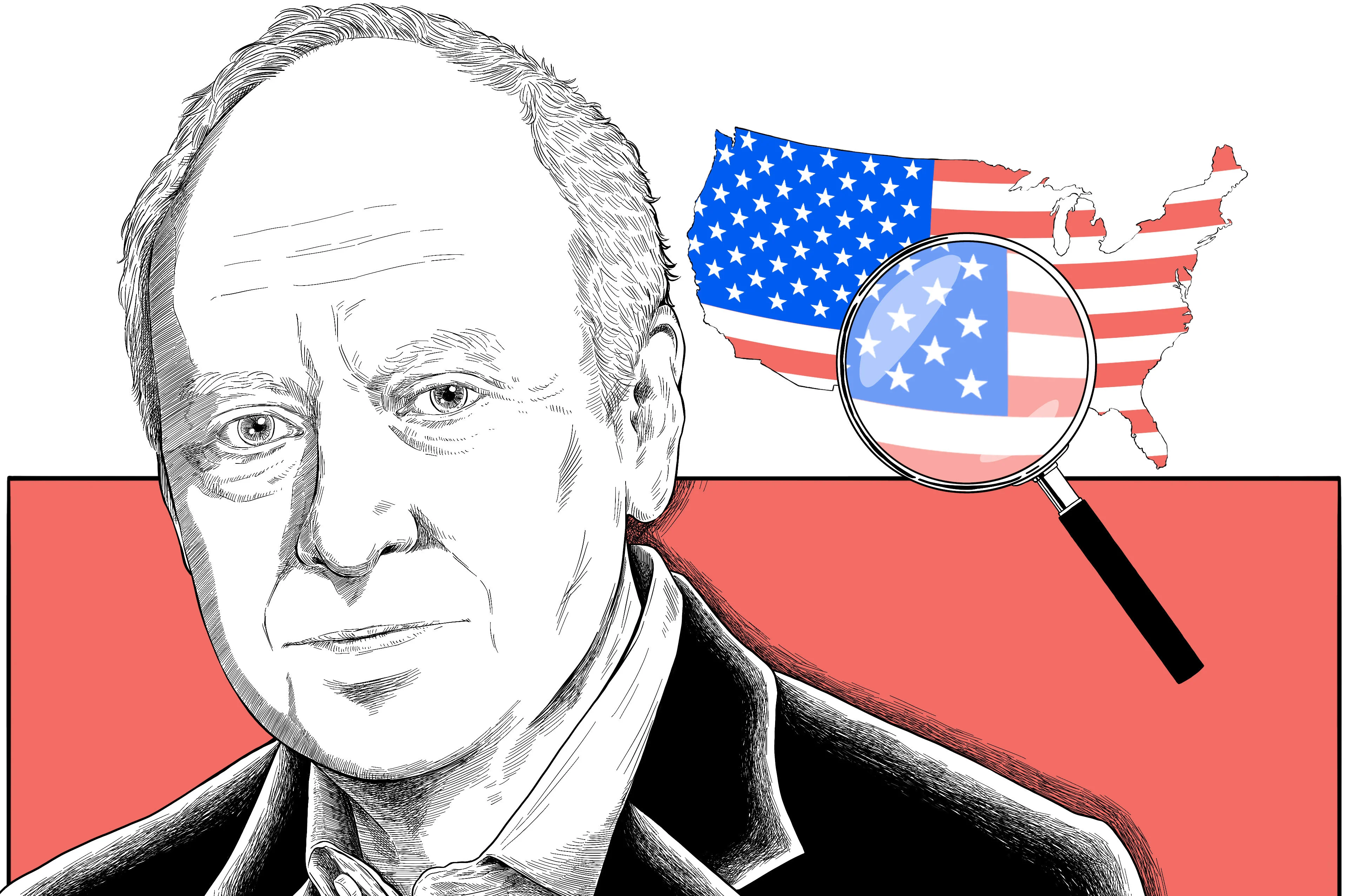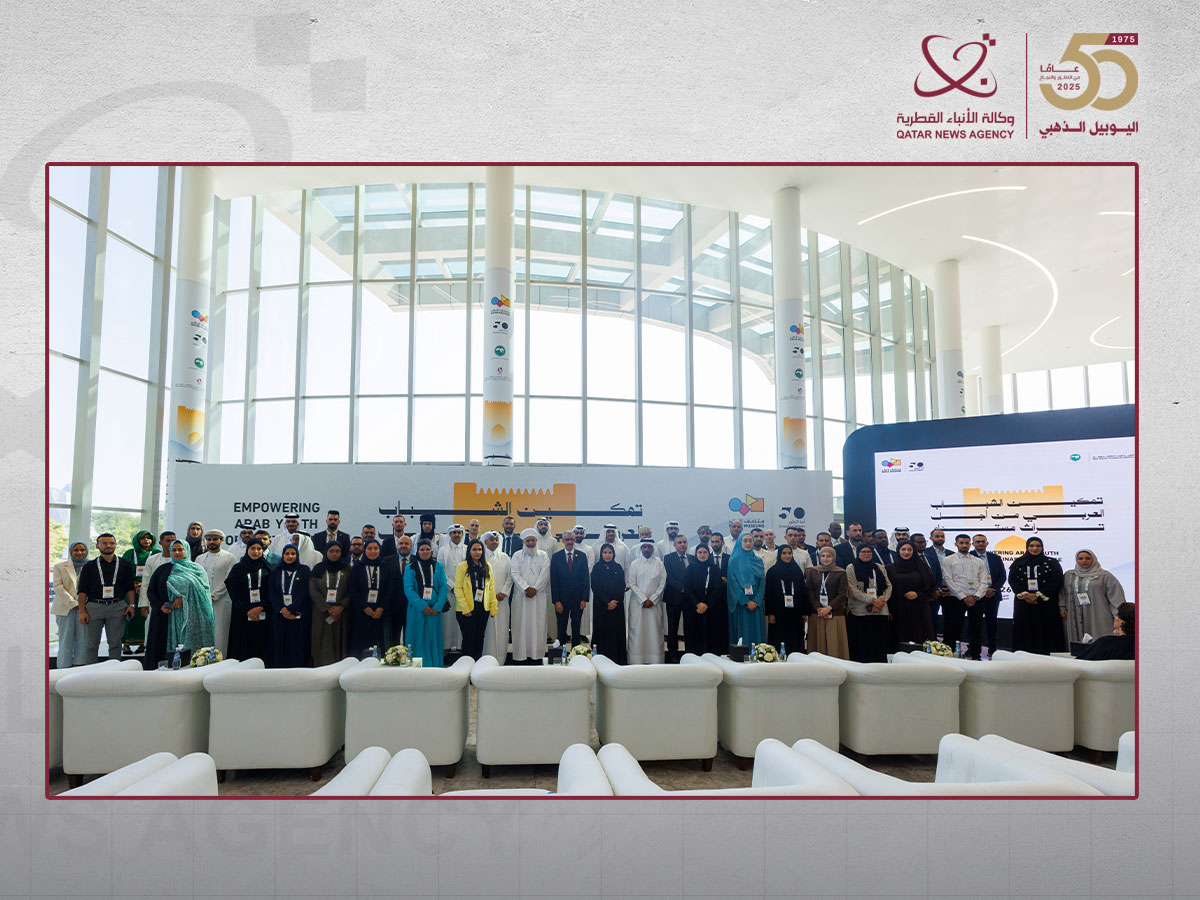Copyright scmp

Michael Sandel is a political philosopher and the Anne T. and Robert M. Bass Professor of Government at Harvard University. His course on justice was the first at Harvard to be made freely available online and has been viewed by tens of millions of people. Sandel recently received the 2025 Berggruen Prize for Philosophy and Culture, which some have described as the Nobel Prize for philosophy. In this interview, Sandel discusses the roots of Donald Trump’s rise to power, the crisis in American higher education and meritocracy in China and the US. This interview first appeared in SCMP Plus. For other interviews in the Open Questions series, click here. How would you explain the rise of US President Donald Trump and the “Make America Great Again” movement? Does the rise of Trump and Maga have any profound impacts on the rest of the world? Do you believe that liberal democracy is in crisis? The Trump presidency and the Maga movement have transformed American politics. What accounts for the rise of Donald Trump is similar to what accounts for the rise of right-wing populist parties and candidates in many countries. For some decades, citizens have felt disempowered. They have felt that their voices do not matter, and there’s been a widespread sense that the moral fabric of community has been eroded. Additionally, there’s a further source of the populist backlash in recent decades: the divide between winners and losers has been deepening, poisoning our politics and setting us apart. This has partly to do with widening inequalities of income and wealth, but it has also to do with the changing attitudes towards success that have accompanied the widening inequality. Those who have landed on top during the age of globalisation have come to believe that their success is their own doing and that they therefore deserve all the rewards the market bestows upon them, and by implication, that those who struggle, those left behind, must deserve their fate too. This gives rise to a sense of anger, resentment and humiliation among those who did not benefit from globalisation. Many working people, especially those without university degrees, feel that elites look down on them. Donald Trump speaks to these grievances. He practises a politics of humiliation that expresses the grievances of people who feel that elites look down on them. This, I think, is the heart of his political appeal. There are a number of impacts of the Trump presidency on the rest of the world. One is his more adversarial attitude towards traditional rivals and also towards allies. Trump has displayed a transactional attitude. We see this, for example, in his attempt to impose tariffs on other countries and the tendency to threaten and bully other countries rather than work with them in a spirit of cooperation. This is beginning to change the way the world sees the United States. And democracy is in some ways in danger, partly because Trump is seeking to assert executive power beyond the constitutional constraints, beyond the separation of powers between a president, the US Congress and the judiciary. He is also trying to exert control over civil society, over law firms, over universities, over the media and so on. Do you think that the deepening political polarisation in the US stems from the failings of a particular party or from inherent flaws within the American democratic system? Political polarisation in the United States is much more extreme today than it has been in recent decades. This is partly because of Trump’s combative attitudes towards his political opponents. But the polarisation was not created only by Trump. He is a symptom of polarisation. The cause goes deeper. It goes back several decades to what I was suggesting before. I discussed this in my book The Tyranny of Merit: What’s Become of the Common Good? The polarisation has its origin in the growing divide between winners and losers and the tendency of working people to feel that they’ve been left behind during the age of globalisation. The economic gains, the economic growth during the decades of globalisation were very considerable, but they flowed mostly to the top 20 per cent of the population. The bottom half in the US experienced wage stagnation, the outsourcing of jobs and the hollowing out of industrial communities. And so, it’s understandable. Let me add one other thing. Beyond the economic inequality that the age of neoliberal globalisation produced was a growing inequality of respect, dignity, social recognition and esteem. As more and more of the rewards went to people in the financial industry, to Wall Street, to hedge fund managers and to well-educated professionals, ordinary working people felt that their contributions to the economy and to the common good were not honoured as valuable contributions. This is why I suggest that the polarisation did not begin with Donald Trump. He exploited it. He took advantage of it. He amplified it. But decades of widening both economic [inequality] and inequality of dignity and respect prepared and paved the way for Trump. The recent killing of the American political activist Charlie Kirk has stirred up much debate and discussion on this issue. Do you see a way forward or can you propose any new solutions to relieve the violence and tension in US politics? The first step is to find ways for not only politicians but also ordinary citizens to engage in dialogue across their disagreements. Because today, instead of dialogue, we have shouting matches where different sides hurl insults at one another without really listening. This tendency is reinforced by social media. The business model of social media depends on holding our attention for as long as possible. The way social media companies capture and hold our attention is by outraging us against those with whom we disagree. Social media has proven a very poor forum for public dialogue and respectful debate. So, we need to create new forums for public deliberation and debate, where citizens can make their voices heard, can have a meaningful say in how they are governed, and where citizens can learn how to engage in respectful dialogue with one another and learn the art of listening. And by listening, I don’t just mean hearing the words of those with whom one is engaged in discussion but listening for the principles and the moral convictions lying behind the positions and the opinions of those with whom we disagree. Listening is a civic art. It’s an expression of respect. We need public forums that encourage healthy public dialogue, that cultivate the art of listening. I think educational institutions, including higher education, have to do a better job of preparing students to engage in dialogue across their disagreements with civility and mutual respect. And finally, I think we need to repair civil society, to create more public places and common spaces, class-mixing institutions, where citizens from different social backgrounds, different walks of life, come together and encounter one another in the course of their everyday lives. And here, I’m speaking of public places … sporting events, municipal centres, public transportation, community centres, public libraries, public parks, recreation areas, public schools. These are all valuable public services that are important to provide, but they should be provided in a way that brings people together from different backgrounds. Because one of the most corrosive effects of the widening inequalities of recent decades has been the tendency to separate us. Those who are affluent and those of modest means increasingly live separate lives. We send our children to different schools. We live and shop and play in different places. These are several ways of trying to address the polarisation at the level of the way we conduct our public debate, the way we educate young people to engage in meaningful, respectful dialogue with one another, and also building class-mixing institutions within civil society that bring us together so that we encounter one another and come to recognise one another as citizens who share a common life. Speaking of higher education, Harvard University, where you are based, and many other Ivy League members find themselves at the centre of a storm unleashed by Trump’s crackdown on American higher education. What is your perspective on the role of higher education institutions in an era dominated by populism? Have academic elites lost touch with the realities of society? I think that those of us in higher education need to ensure that higher education serves the public good. We need to contribute to a healthy, flourishing civic life, and the universities should not only be places where very talented young people go to prepare for a well-paying job and a successful career. The highest purpose is to serve the public good by contributing to a healthy civic life. Donald Trump has attacked Harvard and other American universities, in part, because he wants to extend power beyond government into civil society. It’s part of his attempt to dominate institutions of civil society, including universities, law firms and the media. Even at the cultural centre in Washington, the Kennedy Centre, he has now appointed himself chairman of the board. So, he’ll decide what cultural exhibitions and performances are put on. This is how he is trying to extend, and I would say overreach, his proper role as president. But you asked about the role of higher education, and this goes back also to a theme in my book The Tyranny of Merit: What’s Become of the Common Good? During the age of market-driven meritocracy in recent decades, universities came to define merit and confer the credentials that a market-driven meritocratic society honours and rewards. This has enlarged the role of universities in our social and political life. It has also increased the intense competitive pressure on young people and their parents to prepare to win admission. One of the damaging effects of this competitive meritocratic pressure to win admission to top universities is the way in which it leaves us. Those who do not get in feel left behind and looked down upon because they lack the credentials that are honoured and celebrated in society. There’s another damaging effect of this intense, competitive, meritocratic pressure to get in, which is the toll it takes on the winners, the young people who win admission to universities. From what I understand, this is a common problem in the United States and in China: young people, in preparing for the admission exam and for the competition, have to work so hard and are so anxious and pressured in the competition to win admission that it has damaging effects on their emotional well-being and mental health in many cases. We see rising levels of anxiety, depression and even suicide among young people who are caught up in this frenzy of intensely pressured competition to win admission. I think that we in higher education need to focus less on creating this high-pressure, competitive race, which creates enormous anxiety among young people, and focus more on the intrinsic values that higher education should seek, which are to cultivate self-exploration, teaching and learning, critical reasoning and civic education. Above all, university should be a time when young people are able to step back from the sense of being driven by competitive pressures. Step back to reflect on what path will be most meaningful for them, what ambitions are most worthy for them, rather than be driven. But because the danger is that young people come to see higher education in purely instrumental terms, as a way to get a high-paying job and a successful career, we need to … reduce those intensely competitive pressures and focus more on the intrinsic goods that higher education is meant to serve. A time for reflection, critical [thinking] and also civic education and the public good. The point you just raised appears to be linked to another issue: the humanities and social sciences are facing serious difficulties in universities worldwide, including funding cuts and enrolment challenges. How do you view this situation? I think you raised a very important point. We’ve turned universities into sorting machines for a market-driven meritocratic society. One of the damaging effects is to diminish the role of the liberal arts and the study of the humanities in universities. Fewer and fewer students major in the humanities and the liberal arts. More and more students study computer science in STEM subjects, which are important, but I think that all students, whatever their major field of study, whether it’s computer science, whether it’s engineering, whether it’s biotech, all students should be exposed to the liberal arts and to the humanities, to moral and political philosophy. These subjects are essential to creating a full person, to developing the human personality of young people. It’s essential to developing the full human being. And it’s also essential to creating a healthy civic life and enabling universities to be places that cultivate the moral and civic virtues of young people. You have visited China on multiple occasions, engaging with Chinese university students and opinion leaders. Do you perceive any significant shift in Chinese attitudes towards the market and meritocracy? Over the last few years, I’ve been to China many times and had the privilege of lecturing at more than a dozen Chinese universities, in Beijing and Shanghai, but also in Xiamen and Hong Kong and elsewhere. When I first began visiting, it was to speak about my book Justice: What’s the Right Thing to Do? and then later to speak about my book What Money Can’t Buy: The Moral Limits of Markets and more recently to speak about my book The Tyranny of Merit: What’s Become of the Common Good? In these visits, my lectures were interactive. I put questions to the students and invited them to offer their views on questions such as “what goods should not be up for sale?” and “what are the moral limits of markets?” We found ourselves debating the role of markets, for example, in allocating access to education or healthcare, or in environmental policies in dealing with climate change. Buying and selling human organs was another topic we discussed on one occasion. More recently, in discussing meritocracy, I asked students whether they thought that a very successful athlete or performer, like Taylor Swift, deserved to make 10,000 times more than a teacher or a doctor. The students, as you would expect, had different views on these questions. I was struck during my visits to discuss my book What Money Can’t Buy: The Moral Limits of Markets. I was struck by how pro-market many Chinese students were. I mentioned in the book that the pro-market attitudes among Chinese students reminded me of the pro-market attitudes I find among my students in the US. European students tend to be more sceptical of markets. But when we got to questions of equality and inequality, I did find that many Chinese students worried about too great a gap between rich and poor, too great a gap between the pay of the CEO of a company and the pay of the average worker. So that was an area where opinions differed, and we had those debates and explored the meaning of those debates for theories of justice. Regarding meritocracy, there were similar disagreements, and perhaps we’ll discuss this later, but of course there are two questions about meritocracy: whether meritocracy is about who deserves what. This arises, of course, with questions of pay. But meritocracy, especially in the Chinese tradition, is a theory of who should govern and how to identify those with the greatest merit or virtue. You may have observed that the Chinese system is also meritocracy-based, like the entrance examination of the colleges. Some people argue that the Chinese political system is also meritocracy-based because promotion is based on their performance in their previous role. So how would you assess China’s meritocratic system, both educational and political? Let’s start then with the system of university admission. We’ve discussed the way in which the intensely competitive system of admission to university in both China and the US creates damaging unhealthy competitive pressures on young people. Young people from well-off families who have the resources to prepare their children to get extra special tutoring, for example, cram courses and so on, so that they have an advantage when it comes to doing well on the entrance exam. So, there are questions about fairness and unequal access to the competition. I know that in China there’s been an attempt at a policy of banning some for-profit cram courses. That is an attempt to create a more equal basis for the competition before it really begins. I actually proposed [a solution] in my book The Tyranny of Merit: What’s Become of the Common Good? that some consider to be extreme. That is to identify those applicants to university who are well qualified based on exams and previous school performance and then admit students based on a lottery. This is not a lottery among just people who will not benefit from the education but among those who are well qualified to be admitted by lottery. My suggestion has not been taken up by my university or many others, but it’s a way of at least trying to begin a public discussion about how we can make the seemingly meritocratic competition more fair and less damaging to the emotional health of young people. As far as meritocracy in government [goes], I would say merit is a good thing in allocating social roles, including positions in government and also in companies and in other roles. Ideally, for those who are deciding public policy and how to govern, they should be well qualified and meritorious. China has a long tradition of trying to identify those with the greatest merit in governing. But here’s an important distinction. There are two different kinds of merit in governing. There is what I would call technocratic merit, like those who decide public health should have expertise in matters of health and medicine, and those who decide educational policy should have expertise in that field and so on. I would contrast it when we’re speaking about governing with moral character and virtue. Traditionally, the Chinese embrace of meritocracy in governing did not refer only to technocratic expertise. It referred to virtue, to moral character and the ability to exercise good judgment not only on technical things but also on the common good. And so, in principle, if we had a way of identifying those who excelled in the merits relevant to governing, including not only technocratic merit but also virtue, moral character, the ability to deliberate about the common good, that would be a very compelling basis for appointing government officials. This idea of merit as virtue goes back to Confucius in the Chinese tradition. It also goes back to Plato and Aristotle in the Western tradition. They thought that the virtuous should govern and a meritocratic system should then try to identify those who excelled in the relevant virtue. In practice, it’s very difficult to identify those who excel in virtue and in their orientation to the common good. But in principle that’s what both the Chinese tradition and the Western tradition going back to Plato proposed. Does China also have a risk of populism in this kind of meritocratic system? I don’t know the answer to that question, but there do seem [to be] some similarities between China and Western countries. One feature of the populist backlash against elites that we see in many Western countries, in the US and in Europe, is a growing emphasis on nationalism. We see this, for example, in Trump’s emphasis on immigration. He wants to limit immigration and deport immigrants who are in the US illegally. He wants to strengthen enforcement of the border and, as part of his idea of making America great again, place a greater emphasis on nationalism. Some would say hyper-nationalism. Even at times we see in much of the populist backlash in Europe a similar emphasis on the issue of immigration and national borders. This reflects a populist attempt to draw upon a strong sense of national identity and patriotism. Perhaps this is because people’s desire for a stronger sense, a more assertive nationalism, arises as a reaction against the age of neoliberal globalisation, which emphasised the free movement of people, capital and goods across national borders. But I think part of what people felt was unsatisfying about neoliberal globalisation was that they want to feel a sense of pride in their country. They want to feel a sense of community and belonging. And sometimes this takes dark and dangerous forms, with the xenophobia that Trump sometimes expresses. Sometimes it takes the form of hardening the distinction between insiders and outsiders and makes a country less welcoming of those from abroad who want to live, work or study in one’s country. That’s the danger. A growing nationalism can take this dangerous expression that we see in countries around the world today, not only in the US and Europe, even though it begins with a legitimate and understandable desire. How would you describe the wholesale competition between China and the United States? There is a growing rivalry between China and the United States, geopolitically and also in terms of ideology and governing philosophy. To some extent, the economic and geopolitical rivalry is understandable, given that China is a rising power in the world. Historically, there have been geopolitical rivalries among world powers, especially at moments of rising power, but I think it’s important to recognise that global competition and rivalry are understandable but should not prevent working peacefully together to improve the security of the world. But more than that, to work together peacefully, strengthen global security, increase prosperity and above all, promote mutual learning. We have to be very careful. China and the United States need to be very careful not to allow the inevitable competitive rivalry on the world stage to prevent us from cooperating with each other and learning. By learning from one another, I don’t just mean learning about economic measures and technologies, and this goes back to our discussion of the humanities and the liberal arts, learning about our respective cultural and philosophical traditions, sources of meaning, ways of understanding the role of humanity and the natural world that we inhabit. We need to ensure that our economic and geopolitical rivalry does not prevent us from mutual understanding. One of the great strengths historically of China is that it is by tradition a learning civilisation. This is something that we should build on. I have suggested that the US has been more of a preaching and teaching civilisation than a learning civilisation. That may reflect a certain lack of humility because to learn from one another in this broader human, cultural and philosophical way requires mutual respect. But it also requires a certain humility on both sides and openness to what we can learn by encountering one another. This, in a way, is what I found inspiring during my visits to China, especially meeting young people: the hunger and the readiness to engage in mutual learning and dialogue and discussion. One of my hopes for the future of people-to-people exchanges between China and the US is to expand this kind of dialogue and mutual learning beyond philosophers and scholars, to include young people and ordinary citizens.



